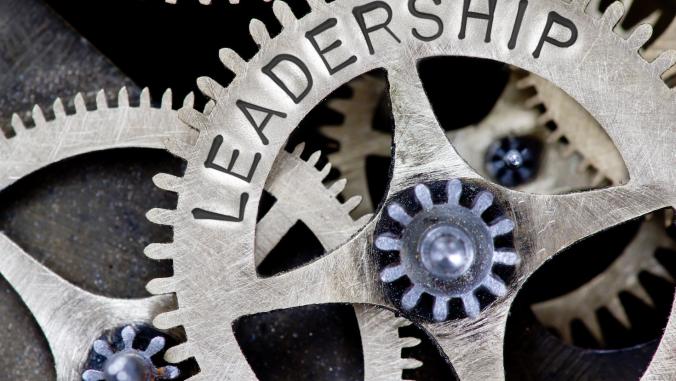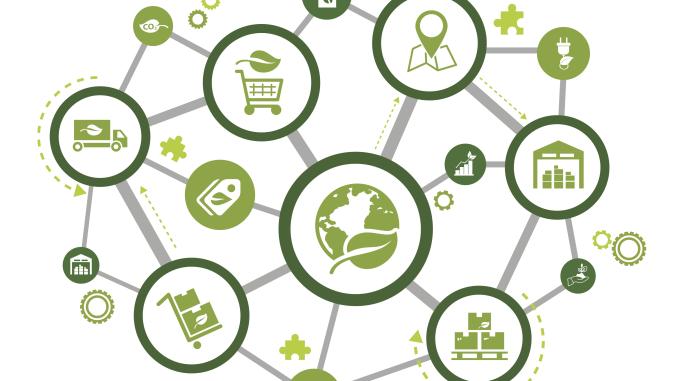Report from COP18: Leadership is a matter of degrees
<p>This year's global climate talks bring lots of — well, talk. But good news from the U.S., too? A report from our correspondent.</p>

Companies and investors want clarity on what is expected and demanded by regulators, the youth wants a world worth living in and demand leadership from regulators and the political leaders, and regulators want everybody to act now and take personal responsibility. You don’t have time to wait for us — why don’t you act? asked Christiana Figueres, the Executive Secretary of the United Nations Framework Convention on Climate Change and Mary Robinson, President for Mary Robinson Foundation – Climate Justice.
I’m writing this from Doha, Qatar, for the United Nations Climate Change Conference. Nearly 200 countries are attending the climate talks (also known as COP18) here, which run until December 7. The aim is to limit global warming to below 2 degrees Celsius, a goal nations agreed in 2010 in order to avert ever more droughts, floods, heat-waves and rising sea levels.
While here, I also attended the World Climate Summit. The list of great speakers at the summit was very long and the views on the path forward were very different. One thing everybody agreed on was that action is needed — now.
According to the Global Carbon Project, CO2 pollution increased by 3.1 percent in 2011, which is placing the world on a path to a temperature rise between 4°C and 6°C, and thereby towards more heat waves, droughts, storms, raising sea levels and huge financial and human costs. To stop the warming, emissions growth would have to rapidly come to a halt and then fall quickly. So the big question is if we can manage to get a real movement going within the next 5,000 days, as Joel Makower from GreenBiz has put it.
Mitigate, adapt or suffer? Professor Jean-Pascal van Ypersele, the keynote speaker from IPCC — the Intergovernmental Panel on Climate Change —kicked off by offering a choice of mix between mitigation, adaptation and suffering. You will get all, he said, but the choices you take today will determine how much you and your grandchildren will suffer. Not a happy start! And even though all the different speakers are agreeing that we need to reduce the carbon emissions, the mix, the speed and the means differ. The professor also showed how the world has changed through time and how 4 degrees Celsius caused the sea to rise 120 meters in ancient days.
Air-conditioned soccer stadiums: Qatar has the world’s highest emissions per capita of greenhouse gases, but only 1.8 million inhabitants, of which about 250,000 are Qatari. As the host, H.E. the Minister for Energy and Industry of Qatar Dr Mohamed bin Saleh al-Sada, shared his view on the right fuel mix: “Economic and equitable development of nations, fueled by the growing need for energy across the globe, is the priority of the day and it has to be achieved by minimizing the carbon footprint. This is a serious caveat and no country, energy consumer or supplier can afford to ignore it or be indifferent to the clarion call for sustainable development.” In Qatar, this mean a need to minimize the global carbon footprint by using less oil and more natural gas as well as renewable energy such as solar that hopefully will be utilized when the 2022 World Cup will take place here — in 12 to-be-built, air-conditioned stadiums! (Perhaps the soccer games could be moved to wintertime to reduce the need for air conditioning.)
Next page: “He had a dream"
Japan’s long-term vision. Japan is the third most industrialized country in the world, but accounts for only 3.8 percent of the global emissions (by contrast, the U.S. produces 18 percent and China 24 percent). Japan’s ambassador for global environment argued that his country’s success in reducing emissions was due to its systematic plans and meticulously worked out initiatives and programs. An attendee replied by saying “He had a dream that his grandchildren would live in a world where all behaved like that.”
Good news from the U.S.? The most positively surprising speech came from Gary S. Guzy, Deputy Director and General Counsel for the White House Council on Environmental Quality. The United States, he says, is rolling out a new plan containing five strategies, including an investment strategy that will yield innovation in the private and public sector, and a strategy toward a regulatory initiatives that will ensure regulatory stability toward 2025, that will enable business and investors to plan for the long term.
This long-term regulatory approach, together with the effort from many forward-looking companies, can bring the U.S. back among the key players that can make a big difference on the future state of the world from an economic, environmental and human perspective.
Leadership needed. And this is exactly the leadership forward-looking investors and businesses are seeking. The world needs the U.S. and China to show such leadership. Many companies are working on new business models for the 21st century. Business models where profits can be made with less or no use of resources, which reduces costs, increases profit and stops pollution. Let’s hope that not only the youth will take responsibility and act as responsible parents, consumers and investors.
I believe and hope that the coming year will show forward-looking companies with new innovative business models that are tremendously successful. I also hope that we will see a consumer movement so we hopefully will be able to reduce the warming and thereby the extent of future heat waves, droughts, storms, raising sea levels and huge financial and human costs.
But we have to act — now.
Image courtesy of World Climate Summit





